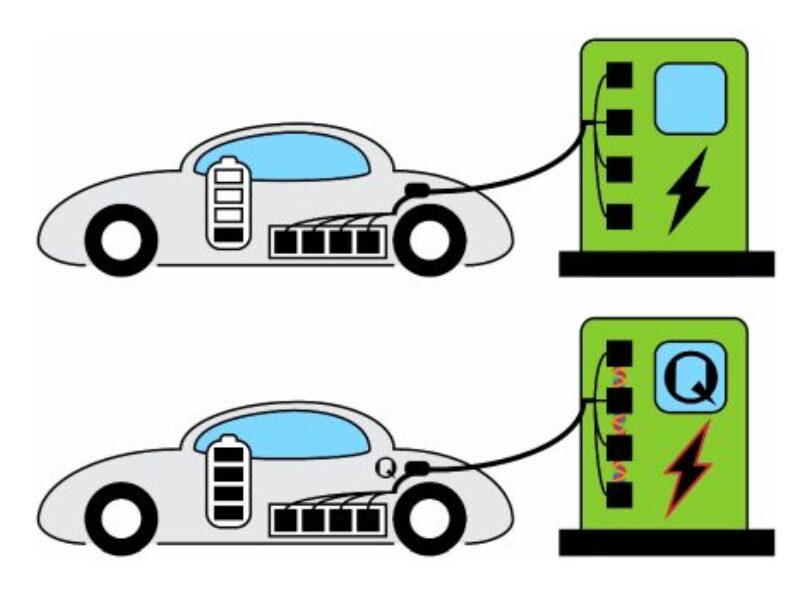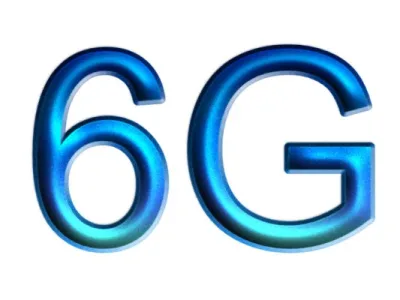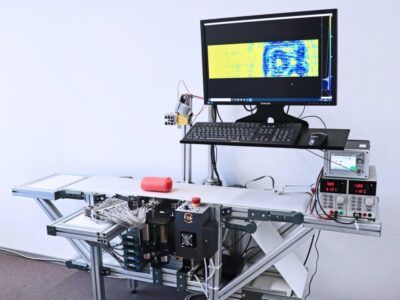
Quantum batteries promise EV charging ‘as fast as pumping gas’
Despite vast improvements in battery technology, say the researchers, today consumers of electric vehicles still face the difficulty of slow battery charging speed. Currently, cars take about 10 hours to fully recharge at home, while even the fastest superchargers at charging stations require up to 20-40 minutes to fully recharge the vehicles.
To address this problem, the researchers looked for answers in the field of quantum physics. Their search has led to the discovery that quantum technologies may promise new mechanisms to charge batteries at a faster rate.
The concept of a “quantum battery” was first proposed in 2012, where it was theorized that quantum resources, such as entanglement, can be used to vastly speed up the battery charging process by charging all cells within the battery simultaneously in a collective manner. This is particularly exciting, say the researchers, as modern large-capacity batteries can contain numerous cells.
Such collective charging is not possible in classical batteries, where the cells are charged in parallel, independently of one another. The advantage of this collective versus parallel charging can be measured by the ratio called the “quantum charging advantage.”
Later, around 2017, it was noticed that there can be two possible sources behind this quantum advantage: namely “global operation” (in which all the cells talk to all others simultaneously, i.e., “all sitting at one table”); and “all-to-all coupling,” where every cell can talk with every other, but only a single cell at a time, i.e., “many discussions, but every discussion has only two participants”). However, it is unclear whether both these sources are necessary and whether there are any limits to the charging speed that can be achieved.
In their exploration of this concept, the researchers showed that all-to-all coupling is irrelevant in quantum batteries and that the presence of global operations is the only ingredient in the quantum advantage. In addition, the researchers say they pinpointed the exact source of this advantage while ruling out any other possibilities and even provided an explicit way of designing such batteries, and further were able to precisely quantify how much charging speed can be achieved in this scheme.
While the maximum charging speed increases linearly with the number of cells in classical batteries, their study showed that quantum batteries employing global operation can achieve quadratic scaling in charging speed. To illustrate this, say the researchers, consider a typical electric vehicle with a battery that contains about 200 cells. Employing this quantum charging would lead to a 200 times speed-up over classical batteries, which means that at-home charging time would be cut from 10 hours to about three minutes. At high-speed charging stations, the charge time would be cut from 30 minutes to mere seconds.
The consequences, say the researchers, can be far-reaching and the implications of quantum charging can go well beyond electric cars and consumer electronics. For example, it may find key uses in future fusion power plants, which require large amounts of energy to be charged and discharged in an instant.
While quantum technologies are still in their infancy and there is a long way to go before these methods can be implemented in practice, it’s believed that research findings such as these create a promising direction and can incentivize the funding agencies and businesses to further invest in these technologies. If employed, say the researchers, quantum batteries could completely revolutionize the way we use energy and take us a step closer to our sustainable future.
For more, see “Quantum Charging Advantage Cannot Be Extensive Without Global Operations.”
 If you enjoyed this article, you will like the following ones: don't miss them by subscribing to :
eeNews on Google News
If you enjoyed this article, you will like the following ones: don't miss them by subscribing to :
eeNews on Google News



